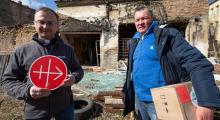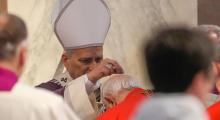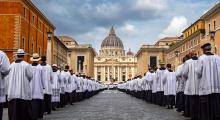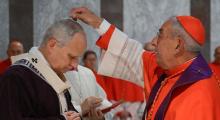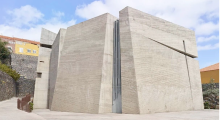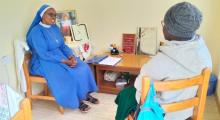Issued by the Catholic Center for Studies and Media - Jordan. Editor-in-chief Fr. Rif'at Bader - موقع أبونا abouna.org
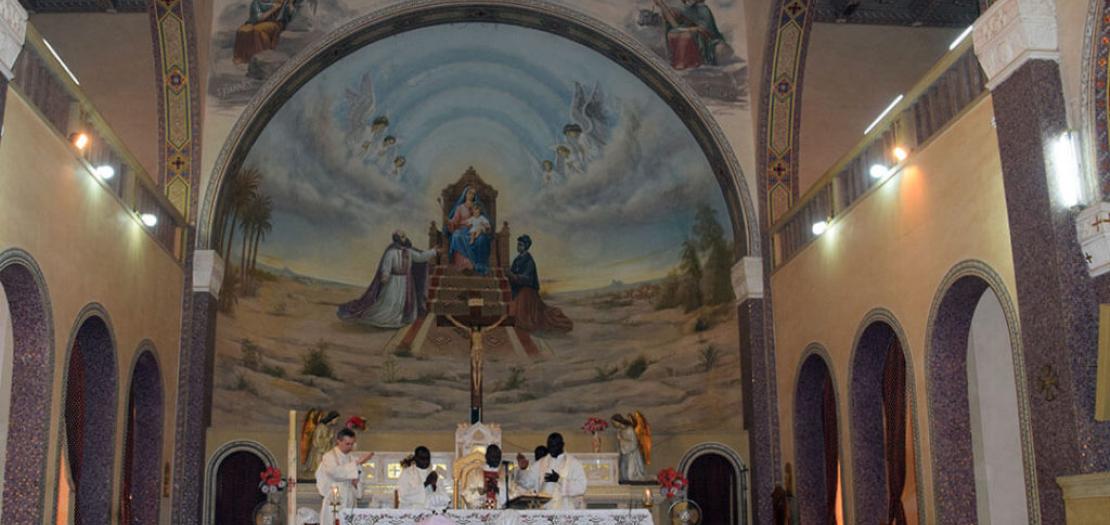
On the first day of the fighting the RSF was already claiming to have taken control of the presidential palace and of three airports, including that of Khartoum. However, it is too early to say whether they are winning. Meanwhile, the fighting is spreading, and according to media reports it has already left almost 300 dead and over 3,000 injuredز
Kinga von Schierstaedt, project coordinator for Aid to the Church in Need (ACN) in Africa and head of projects in Sudan, spoke about the situation in the country and the consequences of the conflict.
What are your contacts reporting about the situation in the capital?
I’ve just had a phone call with a project partner, who is in the north of Khartoum, close to a place where the Rapid Support Forces are holed up. During the call I could hear the shooting in the background. He says that the streets are empty, like in a ghost town: there are no cars moving about, you can’t see anyone or hear any voices in the neighborhood.
They also couldn’t go out of the house, or at least didn’t dare to go out anymore. But because nobody was prepared, they hadn’t bought a big supply of food; and even if they had done so, it wouldn’t have helped them for long, because the electricity network is broken and so the fridge only works when they put on the generator for a short time, using their small supply of diesel. Worse than the problem of food, however, is the lack of water. As there is no longer any running water, they had to pump water out of a well which is only there to irrigate the garden and whose water must be boiled. During the day it can currently reach over 104 degrees in the shade.
Military planes kept flying over them, to attack the RSF and so they were afraid that the bombs could land on them by mistake.
What is the aim of the coup attempt?
This is an attempt by Hemedti to overthrow al-Burhan and it is the culmination of tension which has been brewing in the country since the coup of October 2021. In that coup the two of them brought down the transitional government which was set up after the removal of the dictator Umar al-Bashir in April 2019.
This is not about ideologies, but about who will govern and how, about interests, power, wealth and the integration of the RSF. Hemedti sees his RSF as decisive for the security of the country and is demanding more power. The negotiations about the integration of this paramilitary group into the army were a stumbling block between the two, and Al-Burhan’s decision to relocate the RSF troops in various parts of the country, since he saw Hemedti as potentially undermining his power, was the spark that led to the attempted overthrow.
But there is another important motive. Sudan is Africa’s third largest producer of gold, and Hemedti owns gold mines in the north of the country. Up to 16 billion dollars go from there each year to the United Arab Emirates. Hemedti has made gold his business. Gold is his power and one of his interests.
At the same time the army has a huge number of buildings and businesses of all kinds, which it would be reluctant to hand over to a civilian government.
Is the fighting limited to the capital or does it threaten to spread into civil war across the country?
Apart from in the capital, where the fighting is currently the fiercest, there are also confrontations in Merowe, El Obeid and in the Darfur region. In El Obeid heavy fighting is taking place. The square in front of the cathedral became a battlefield because there is an RSF camp right next to it. On Thursday two big explosive devices fell on the premises of the church; one blew out the windows of the cathedral and the other destroyed the adjoining priest’s house. Thank God, nothing happened to the priest, as he was no longer in the house.
There is always a danger that the fighting will spread because this is a power struggle, and the positions are very hardened. I spoke with a project partner in Kosti, in the south of the country on the border with South Sudan. There the situation is currently quiet.
What then is the situation for the Catholic Church? Has it also been affected or in some way limited in its work?
The Catholic Church in Sudan is very small, as over 95 percent of the population is Muslim. As this is not an ideological or religious conflict, all citizens are equally affected. Believers, priests and religious are unable to leave their houses. Mass on Sunday has been stopped, and priests are no longer celebrating daily Mass in the church. In the crisis zones the life of faith continues only in people’s houses.
What are the foreseeable consequences?
One of our project partners put it this way: “I have the feeling that it is getting darker and darker in Sudan.” The country was already in a desperate economic state: enormous inflation and no liquidity. The conflict is making prices rise even more, while people have no money.
Civil wars often lead to waves of refugees. Are there signs of this?
Many people are leaving the inner-city areas where the shooting is taking place. Besides that, some of them lack electricity, and the water they need to survive, so they flee to friends and relatives, mostly outside the city. We don’t yet have any reports of big waves of refugees or refugee camps, but there is certainly a flight from the cities.
Is there still a chance of containing this conflict, and who could have an influence on it?
At the moment, positions are incredibly hardened. Our contact people say that if neither group gives way or wins, then they can’t believe that there will be a quick end to the conflict. We are all praying that a government will come to power in Sudan that seeks justice and peace. That is what all our contacts are asking for. They tell us that at the moment we cannot support them with material help. They tell me: “The one thing which can give us strength now is knowing that we are carried in prayer.”


